With the myriad of digital multimeters available in the market, choosing the right one could be daunting. The two brand names that stand out in today's industry are Fluke and Fieldpiece. But which one is the right tool for the job?
We've scoured the internet for information about these popular brands to help you decide on your next multimeter. With that said, let's dive right in!
Among industry professionals and hobbyists, the multimeter brand that is known for having the best reputation for quality engineering and in-depth troubleshooting is Fluke. Not all multimeters function the same way, however.
In addition to durability and accuracy, you should consider other factors in choosing a multimeter, such as safety, design, special features, and price.
Since a multimeter is one of the essential diagnostic tools for an HVAC technician, it is vital to have the appropriate tool in your bag. So keep reading to learn what to consider when choosing the right device!
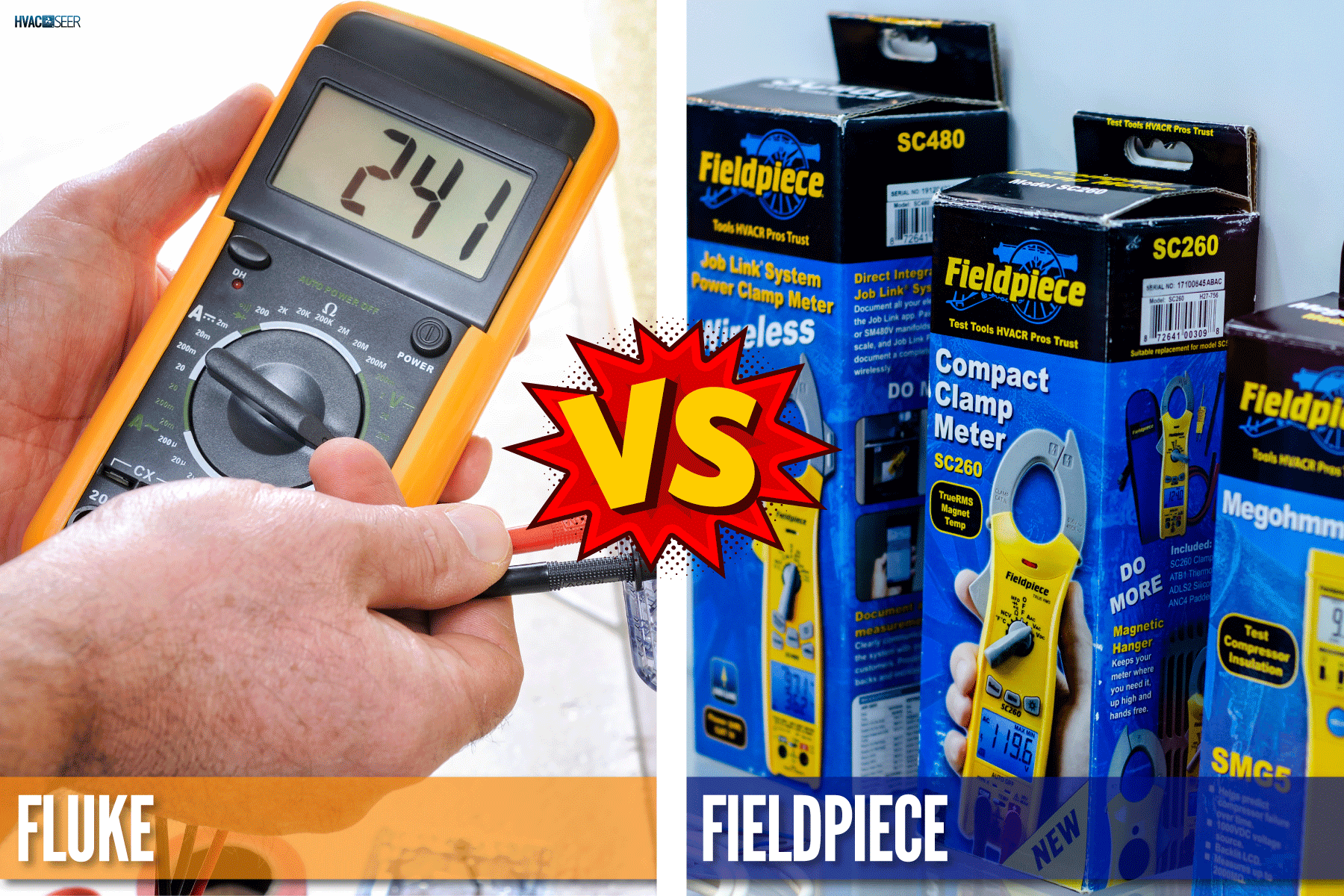
Choosing The Right Multimeter
Fluke and Fieldpiece are industry leaders for multimeters. Reviews from professionals around the country unanimously place them at the top of their lists when comparing other brands.
However, the difference in these multimeters depends on their functionalities. You must consider your job requirements because the choice depends on your technical needs.
Accuracy
When deciding on a multimeter, you want to find one categorized as "True-RMS." The RMS stands for "root mean square." This means that the device can measure both sinusoidal and non-sinusoidal waves.
This would give you high accuracy (up to 40% low or 10% higher than standard meters). This is a must when dealing with HVAC appliances.
Luckily, both Fluke and Fieldpiece devices are True-RMS, delivering very accurate results. The difference between the two is that Fieldpiece is slightly slower by a few seconds in measuring results.
So, if a quick, almost instantaneous meter reading is crucial to your troubleshooting, then Fluke would be the better choice here.
Design
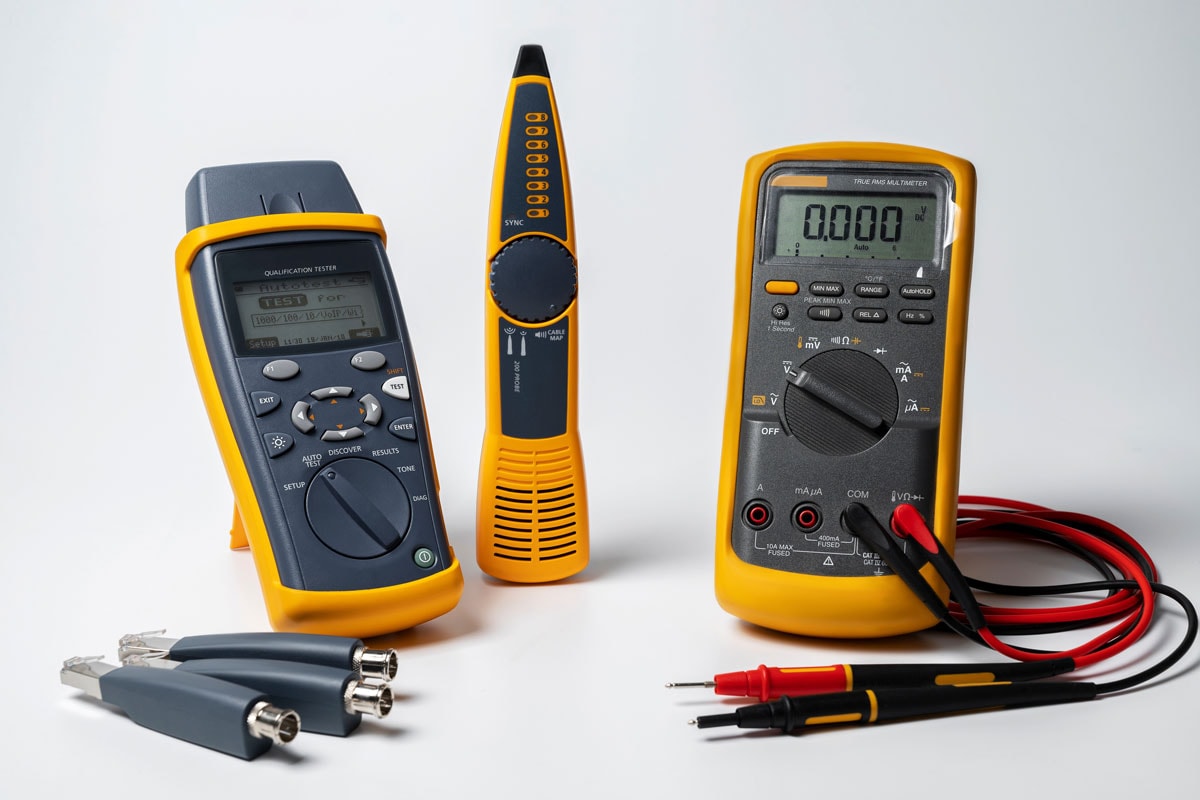
Fluke designs excellent bench meters in its 110 series. They are easy to operate with one hand and fit snugly inside your tool bag.
Meanwhile, Fieldpiece has a practical ergonomic design for its products, particularly the clamp and stick meters. They are compact in design, allowing them to fit nicely inside a tool belt when climbing a ladder.
The SC680 model, however, is pretty big for a compact tool, measuring 18.5" tall. It also boasts a unique rotating swivel head on its amp clamp for easier access to hard-to-reach places.
Plus, it includes a bonus LED light built into the clamp jaw to illuminate your workflow in low-light conditions. If your project requires a more compact clamp meter from Fieldpiece, then the SC260 would be the better option.
See the Fieldpiece SC680 on Amazon.
Display Screen
It's essential to read your meters accurately on a good-quality screen. If you factor in human error in reading measurements on a small screen, it could lead to accidents or damage to property.
Fluke packs a huge 6,000-count display screen with a powerful backlight. This comes in handy when working in low-light environments. Inversely, the brightness of the screen is helpful during broad daylight.
Fieldpiece display screens are comparable to Fluke, with a 4,000-count display on the lower-end SC260 model and a 10,000-count display on the SC680 model. However, the Fieldpiece HS33 model has no backlight and is unsuitable for low-light environments.
Check out the Fluke 116 on Amazon.
Durability
Fluke has always held the edge for durability compared to its counterparts. It's built from solid material with rubber molding around the device, making it virtually resistant to accidental drops.
It's not uncommon to find a technician continuing to use his older model Fluke purchased a decade ago.
Comparatively, Fieldpiece is not the most durable but is built from tough plastic. The HS30 series does have rubberized bumpers on its corners for added protection, whereas the clamp meters do not.
The Fieldpiece LT17A model, like the Fluke models, also has a rubber boot around its rugged body. Keep in mind where you will be using the device.
If you are climbing a ladder often to do your work, then perhaps opt for a device built for a rugged situation, like the HS series. Otherwise, the SC Fieldpiece series would suffice if you find yourself mostly indoors or on the ground.
Check out the Fieldpiece LT17A on Amazon
Features And Accessories
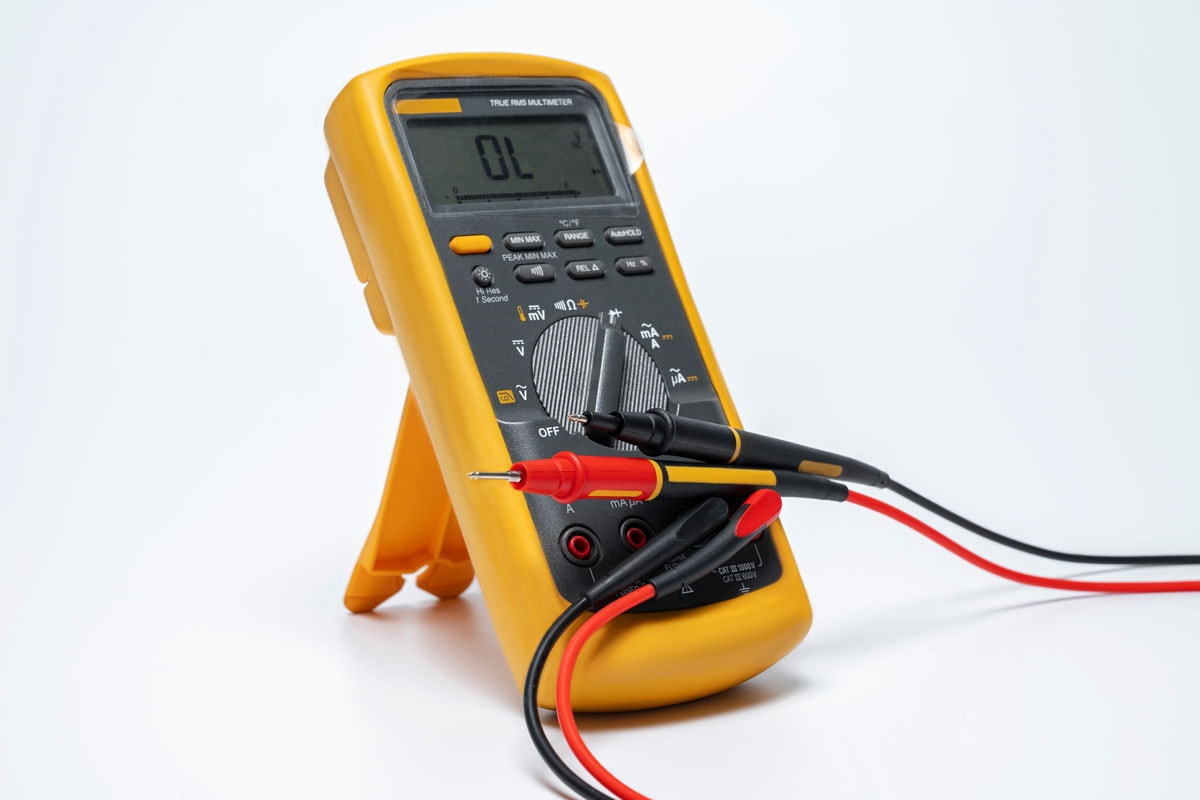
Fluke multimeters have a convenient built-in kickstand to prop up the device on a nearby workbench for easy-to-read positioning. If you typically work in a garage, this will be convenient.
Fieldpiece uses magnets, whether positioned on the back of the device (SC260) or a hanger (HS33). This is helpful if you stick it to a ladder or metal box.
Knowing what environment you would use the device in will help you decide which is best for you.
Temperature Sensor Probes
For HVAC systems, choosing a multimeter with the function to read temperature measurements is highly recommended. Fieldpiece multimeters all have built-in temperature reading capabilities.
For Fluke, the 116 models are preferred by many HVAC professionals because of this specific feature. It can measure from -40°F to 752°F; however, it is essential to note that the other models in the 110 series do not have this feature.
The Fieldpiece multimeters measure from 32°F to 122°F. This is a significant difference, so consider the condition you will use.
Safety
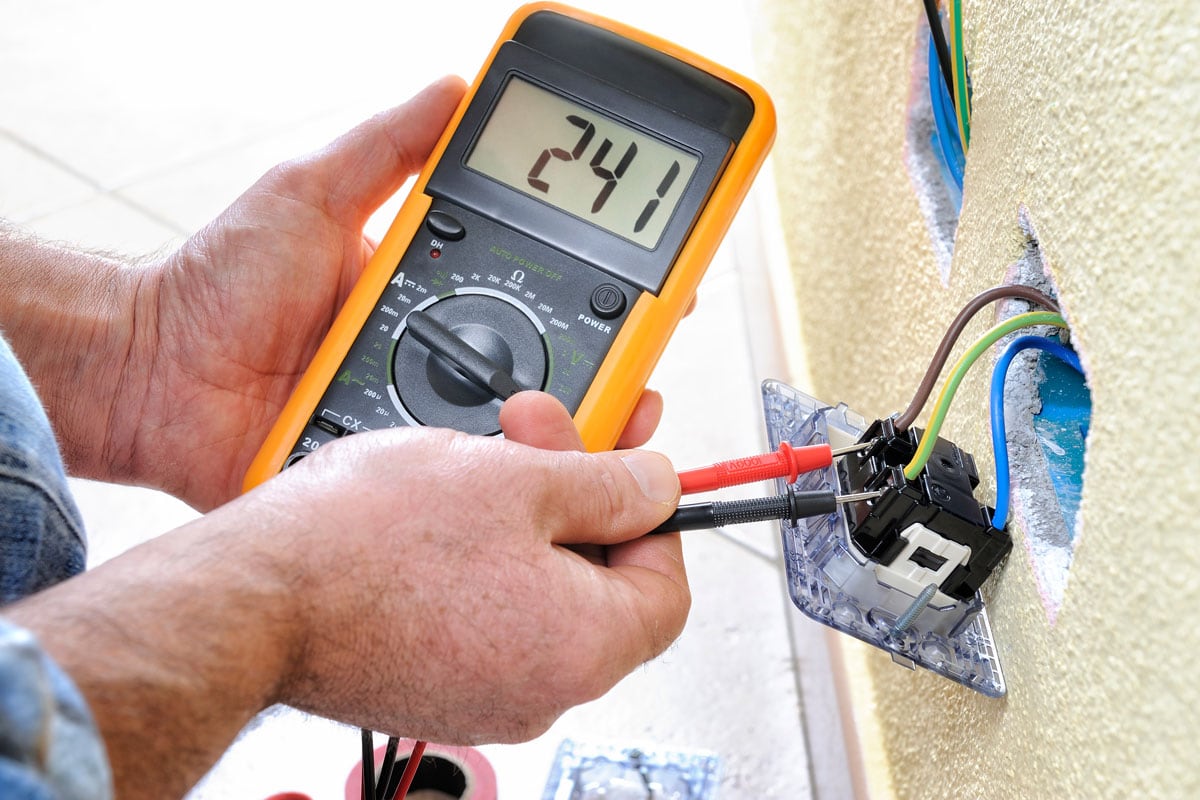
Safety should be the number one deciding factor in choosing the right device.
Your meter must be built to protect you because you would work in high voltage, high current, and high-temperature environments. The minimum rating to look for should be CAT III 600V, with higher-end devices rated higher at CAT IV 600V.
Both Fluke's and Fieldpiece's products meet the minimum standard safety ratings. Take note of the capacity in which you would be working.
If you anticipate working on higher voltage systems, consider purchasing a higher-end multimeter from either of these brands.
Non-Contact Detection
Another safety feature to consider is the non-contact voltage detection feature, which allows you to measure live wire readings without physically touching them.
For Fieldpiece, they are built into their stick and clamp meters. Fluke has it included in the 116 and 117 models.
Price
The phrase "you get what you pay for" certainly holds for Fluke products. They are typically more expensive than other brands of multimeters because of their recognized reliability and durability.
The best value would be the Fluke 116/323 Combo Kit. It is a premium option but includes many accessibility features and accessories.
Since Fluke is known to be pricey, it might not be the best choice if you only need to test some used batteries. Therefore, the budget-friendly Fieldpiece would be just right for the job.
See this Fieldpiece SC260 on Amazon.
How Long Do Multimeters Last?
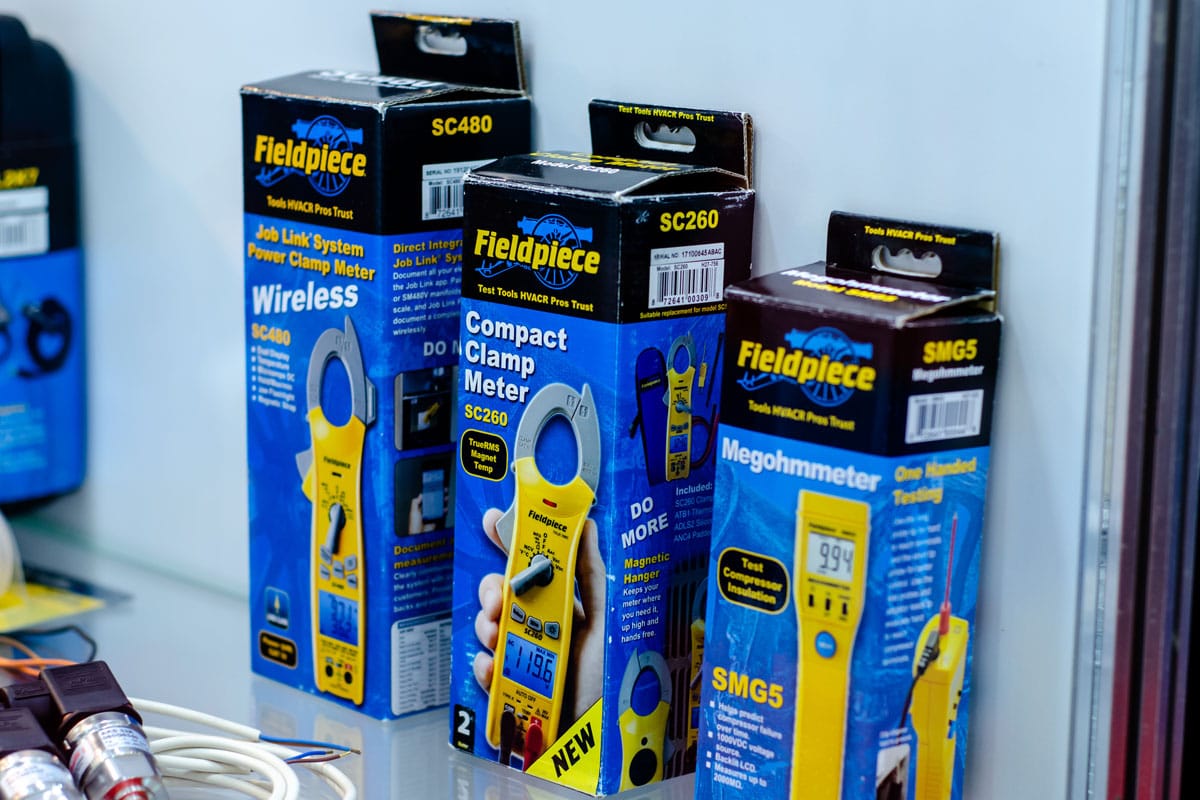
The answer to this depends on many factors, including how it will be used and cared for. You could do a couple of things to prolong its life expectancy.
First, always use fresh batteries. When the device is not in use, remove the batteries from the device to prevent corrosion and store it in a dry, room-temperature environment.
Regularly clean the probes and jacks from gunk build-up to keep your readings accurate.
Finally, use the device as prescribed. Do not overload it past its maximum capacity. Generally, it's best to have your multimeter serviced after one year to keep it lasting longer.
Is It Okay To Buy A Second-Hand Multimeter?
Fluke products are built to last, so purchasing a used multimeter is absolutely fine. If possible, it would be much better to try before you buy.
Bring along a resistor, diode, and battery to test the device's usual functions. Additionally, ask if the multimeter is still under warranty. This could be useful for you in the future.
To Finish Up
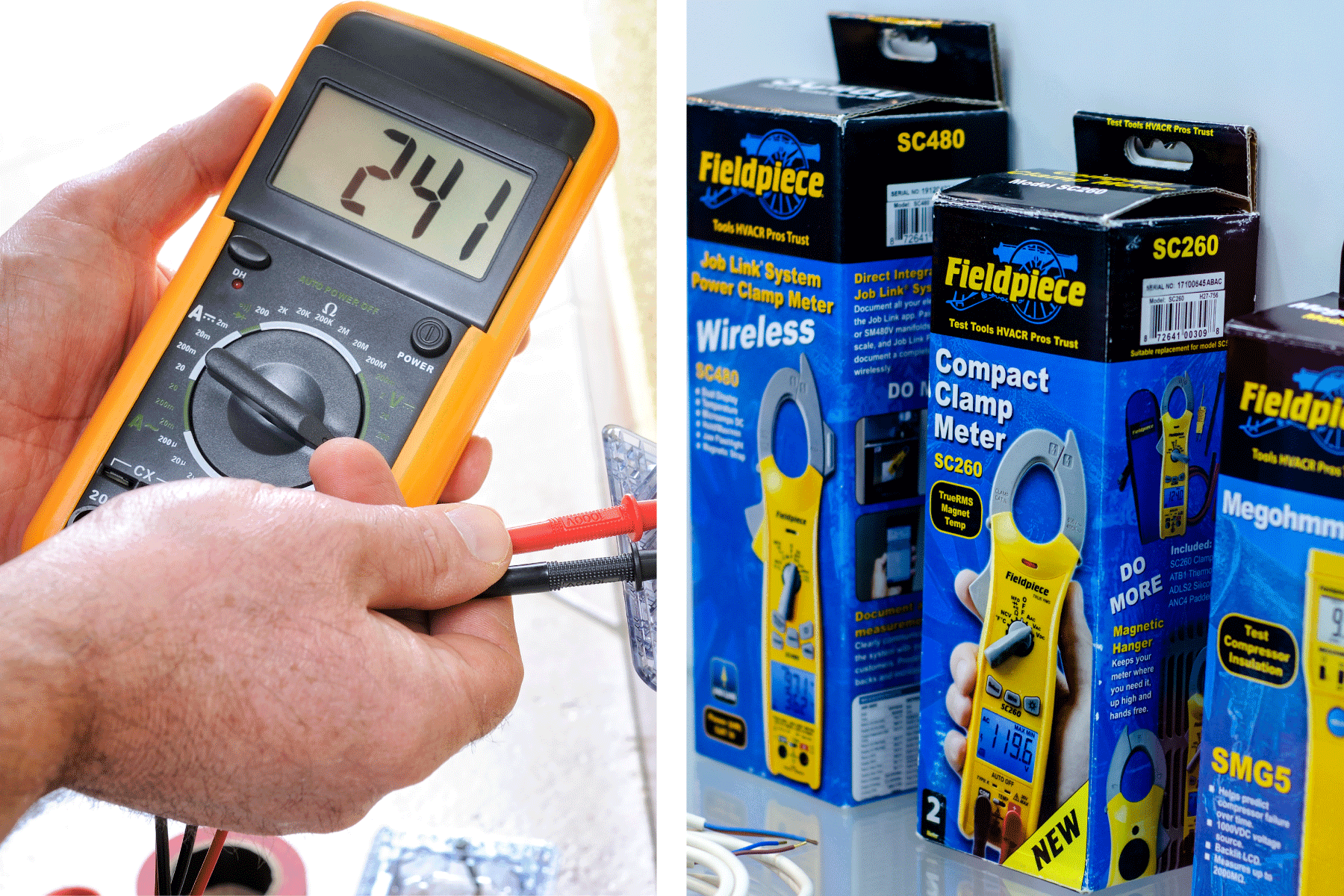
Fluke's brand of products has always been favored and trusted among HVAC technicians and electricians, but do not discount Fieldpiece.
Aside from minor differences in design and speed, it is still a comparable contender to the mighty Fluke. It all comes down to personal preference and specificity to the job.
If you have the extra cash to spend, you can't go wrong with a Fluke.
Made it to the end? Check out these related HVAC posts below!




